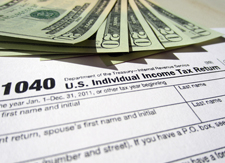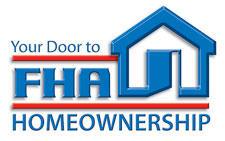
On June 30, 2025, AB 130 was passed by the California Legislature and signed into law by Governor Newsom. This law is effective immediately! The overall goal of the bill was to expedite housing and reduce costs by waiving some CEQA requirements. However, AB 130 affects homeowners associations by amending part of the Davis Stirling Act, specifically Civil Code Sections 5850 and 5855, which deal with association enforcement procedures. Notably, the initial draft of the bill capped the amount an association can fine a member for a violation at $100. This means that an association can only fine up to $100 maximum to enforce their rules and governing documents. (See Civil Code Section 5850(c)(2).)
A last-minute change to the bill added language that provides that the fine must be capped at $100 unless “the violation may result in an adverse health or safety impact on the common area or another association member’s property.” (See Civil Code Section 5850(d(1).) This change was added on June 27 without any committee hearings or opportunity for public engagement. The change also requires that the board make a “written finding” that describes the adverse health or safety impact during an open board meeting. (See Civil Code Section 5850(d)(2).)
The bill also requires that the board give the violating member the opportunity to cure prior to the hearing. If the member cures the violation before the hearing, or the member provides “financial commitment” to cure the violation if it would take longer to cure the violation before the set hearing. (See Civil Code Section 5855(c).)
Another notable change is that procedures are added to the enforcement process. If the board and the violating member are not in agreement after the hearing, then the member shall have the opportunity to request IDR. (See Civil Code Section 5855(d).) If the board and the violating member are in agreement following the hearing, the board is required to draft a written resolution signed by both the board and the violating member. This resolution binds the association and is “judicially enforceable.” (See Civil Code Section 5855(e).)
Finally, a minor change to the hearing procedures requires that the board provide the notice of hearing results within 14 days, instead of the prior 15 days, after the action. (See Civil Code Section 5855(f).)
It is not difficult to anticipate the immediate and significant impact this bill will have on community associations. The new $100 fine cap will substantially weaken an association’s ability to deter high-risk, high-reward violations—such as unauthorized short-term rentals (e.g., Airbnb) or construction of improvements without prior architectural approval. Owners may now view the minimal fine as merely a cost of doing business, thereby undermining the effectiveness of enforcement efforts and diminishing compliance with the governing documents. Moreover, many associations’ existing fine schedules will be rendered unenforceable under the new law.
| Boards should promptly review and revise their enforcement and fine policies to comply with the statutory cap. We strongly encourage you to consult with your association’s legal counsel to obtain guidance tailored to your specific governing documents and community needs. |
 HOA Lawyer Blog
HOA Lawyer Blog


 Recent legislative changes under
Recent legislative changes under  Asked – Our insurance was cancelled and with the new policy the premium sky rocketed. There is not enough money in the operating account or budget to pay for the new premium. Can we pay from reserves?
Asked – Our insurance was cancelled and with the new policy the premium sky rocketed. There is not enough money in the operating account or budget to pay for the new premium. Can we pay from reserves? 
 2020 has strained the purse strings of California homeowners associations. When the pandemic hit in March, it forced HOA’s into uncharted territory, which resulted in unanticipated legal fees to address a myriad of issues such as how to conduct meetings, enforce the governing documents, and maintain common areas during state-ordered shelter-in-place directives.
2020 has strained the purse strings of California homeowners associations. When the pandemic hit in March, it forced HOA’s into uncharted territory, which resulted in unanticipated legal fees to address a myriad of issues such as how to conduct meetings, enforce the governing documents, and maintain common areas during state-ordered shelter-in-place directives. Assembly Bill 2912
Assembly Bill 2912
 We previously
We previously  A bi-partisan group of the House of Representatives would like to think so. According to the Community Associations Institute (CAI), more than 66 million Americans live in homeowners associations across the country, with an estimated 13 million of them living in California. These homeowners pay assessments to cover the costs of road maintenance, street lighting, street cleaning, snow removal and other municipal services. However, they also pay for these services through their local, county, or state property taxes. U.S. Representatives Anna G. Eschoo (D-CA) and Mike Thompson (D-CA) have introduced H. R. 4696, the “
A bi-partisan group of the House of Representatives would like to think so. According to the Community Associations Institute (CAI), more than 66 million Americans live in homeowners associations across the country, with an estimated 13 million of them living in California. These homeowners pay assessments to cover the costs of road maintenance, street lighting, street cleaning, snow removal and other municipal services. However, they also pay for these services through their local, county, or state property taxes. U.S. Representatives Anna G. Eschoo (D-CA) and Mike Thompson (D-CA) have introduced H. R. 4696, the “ We have previously blogged about the
We have previously blogged about the